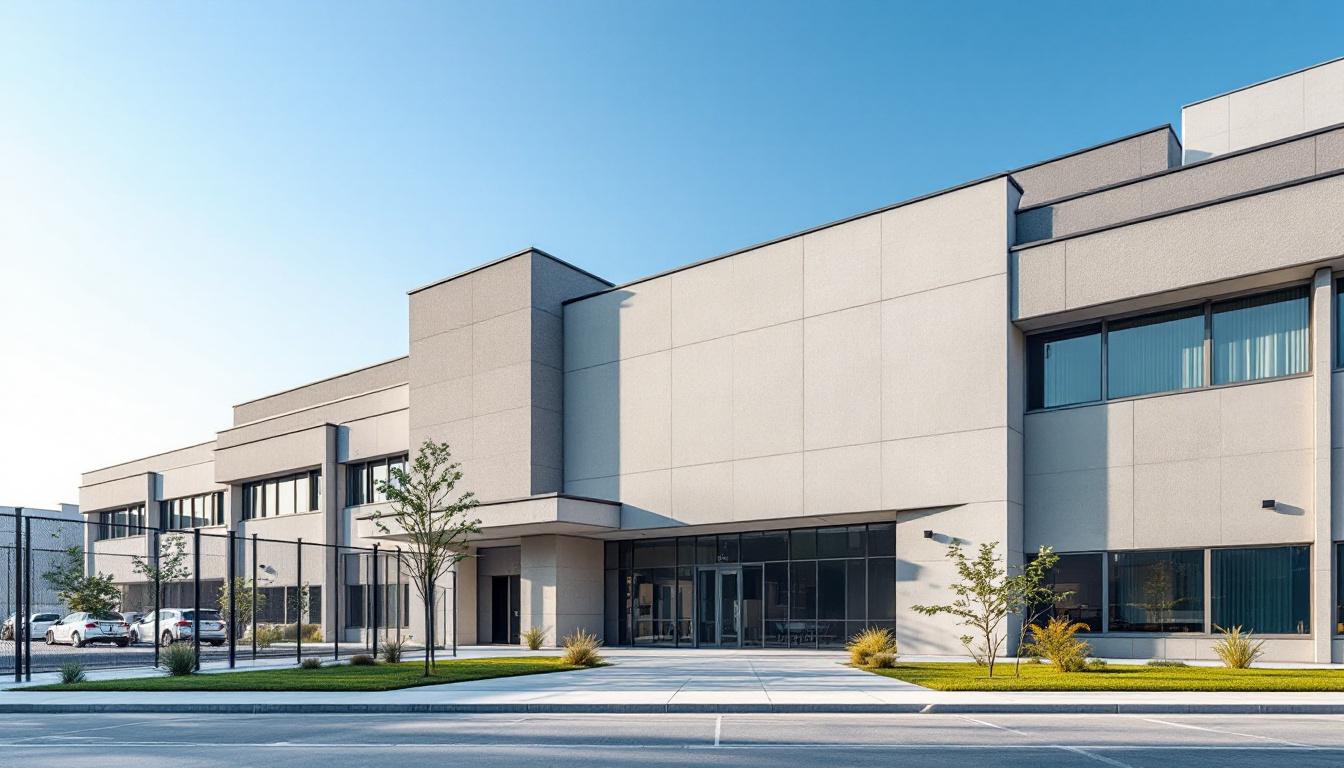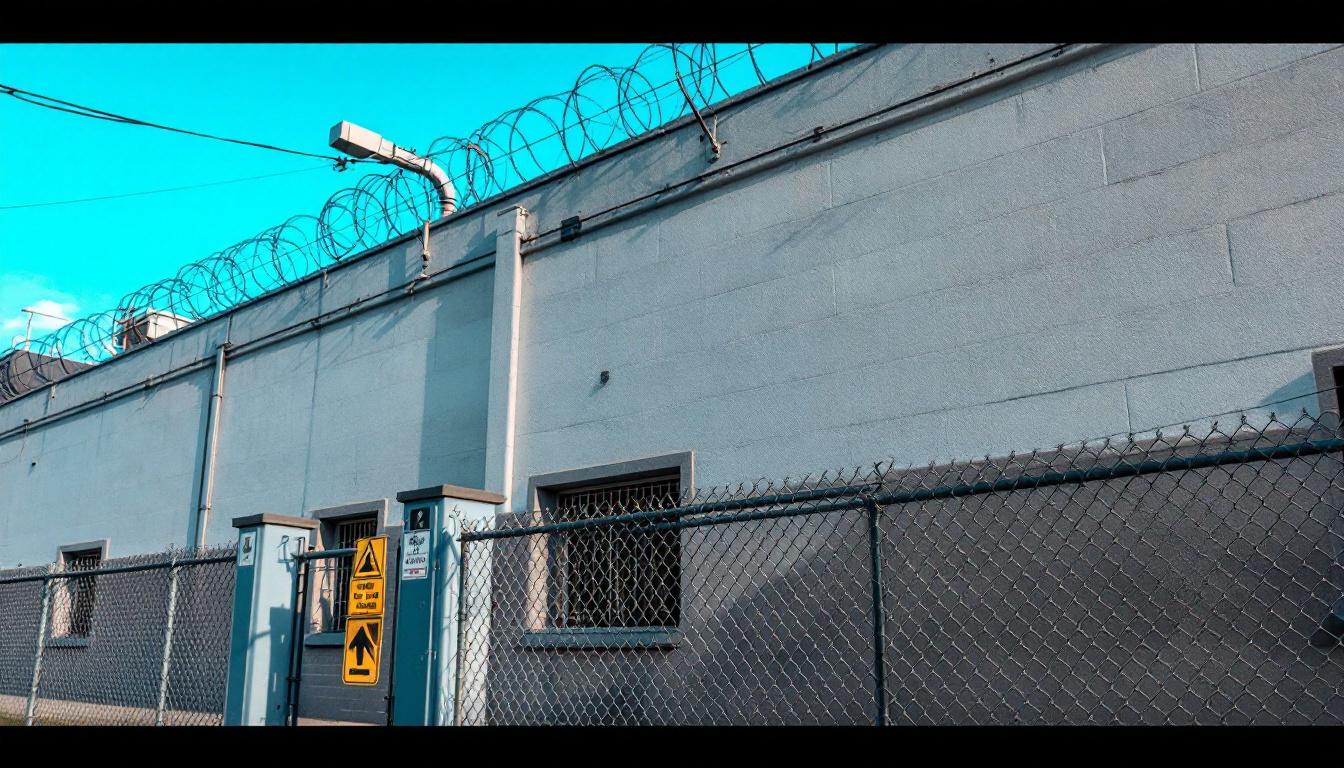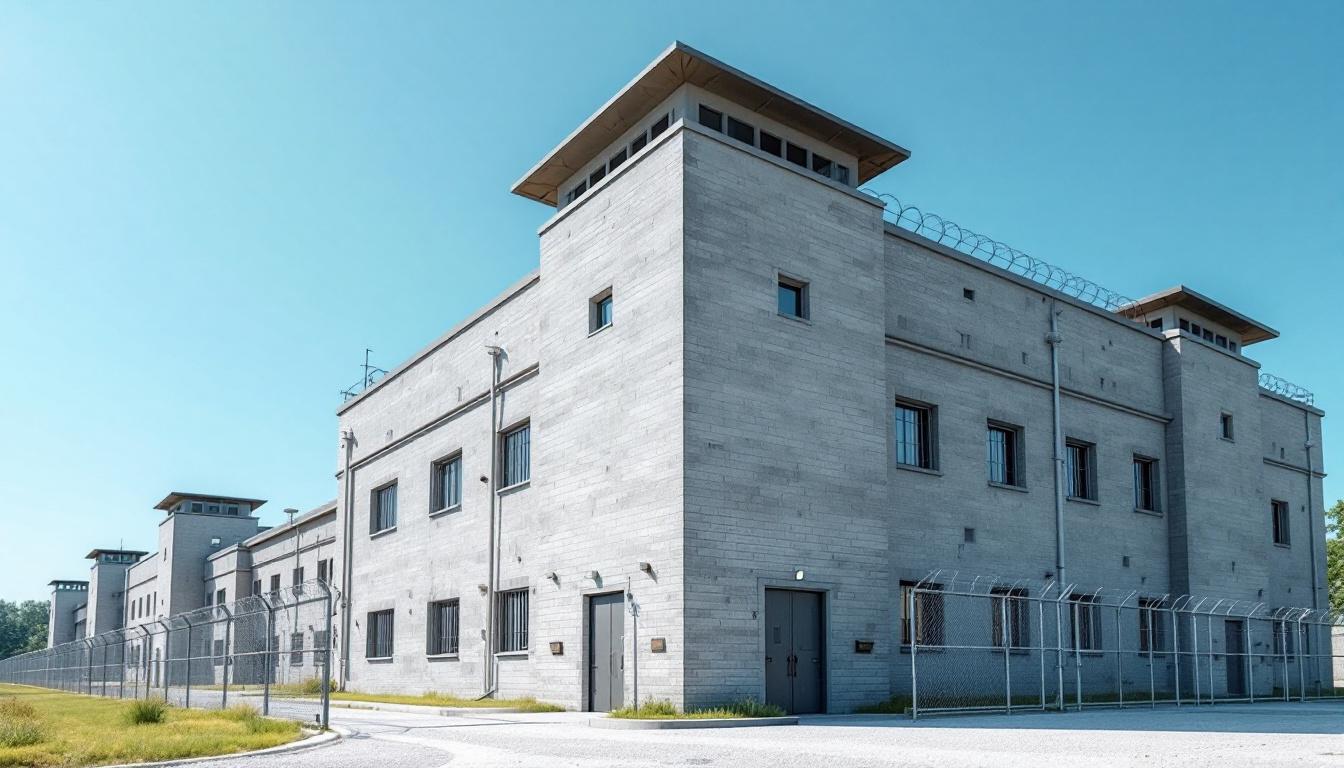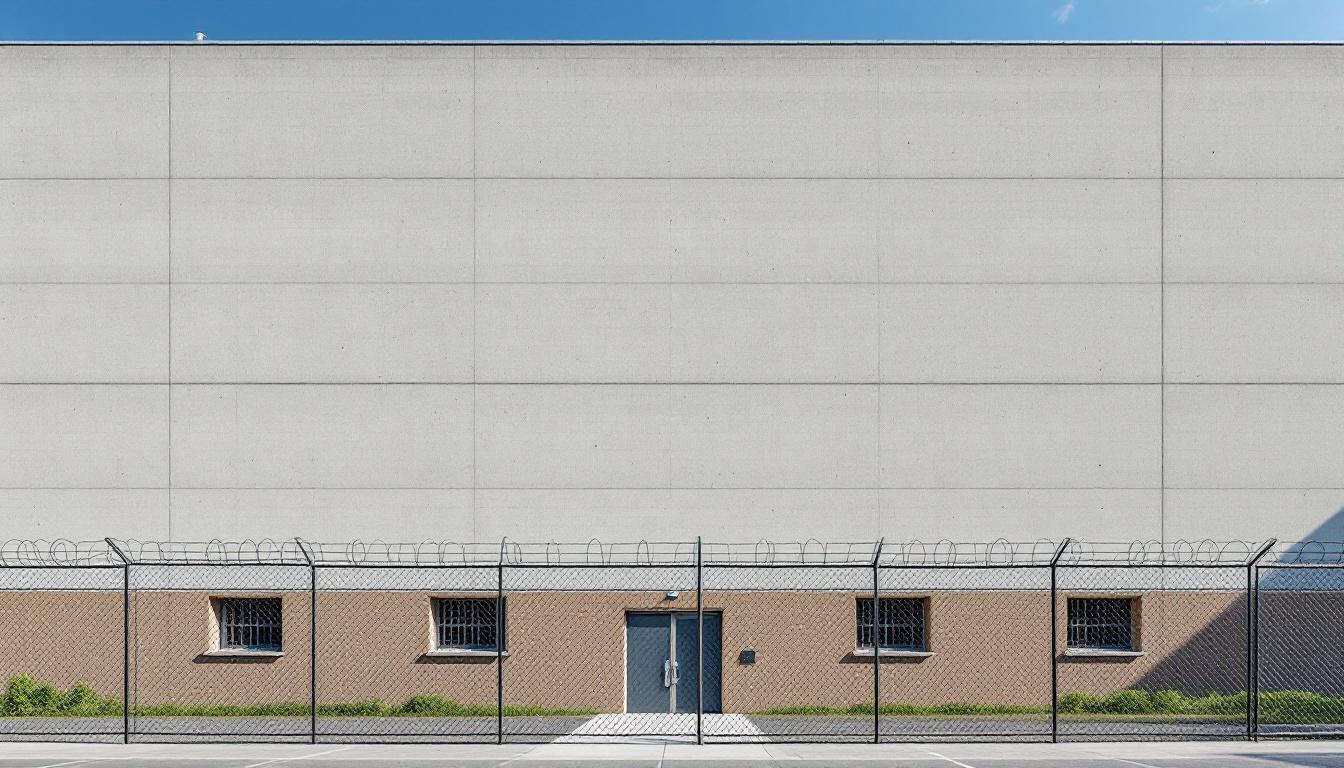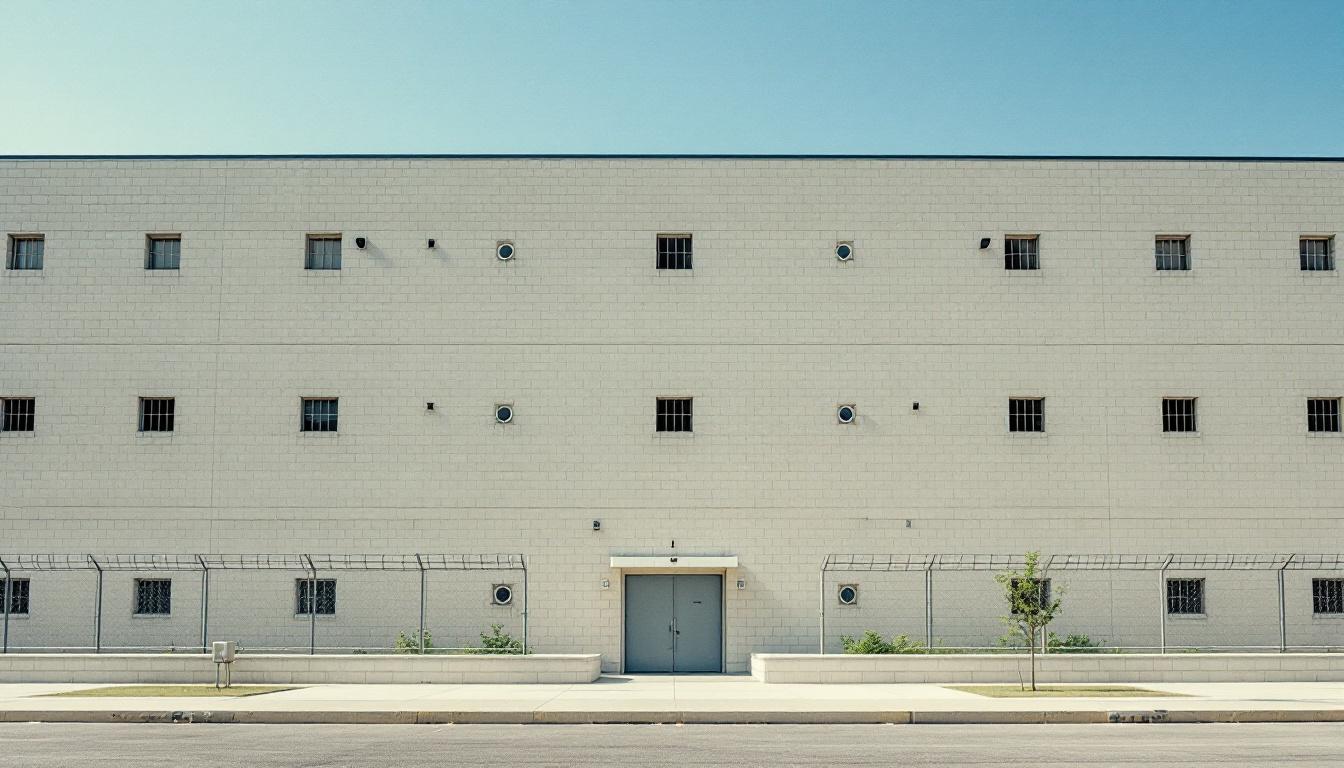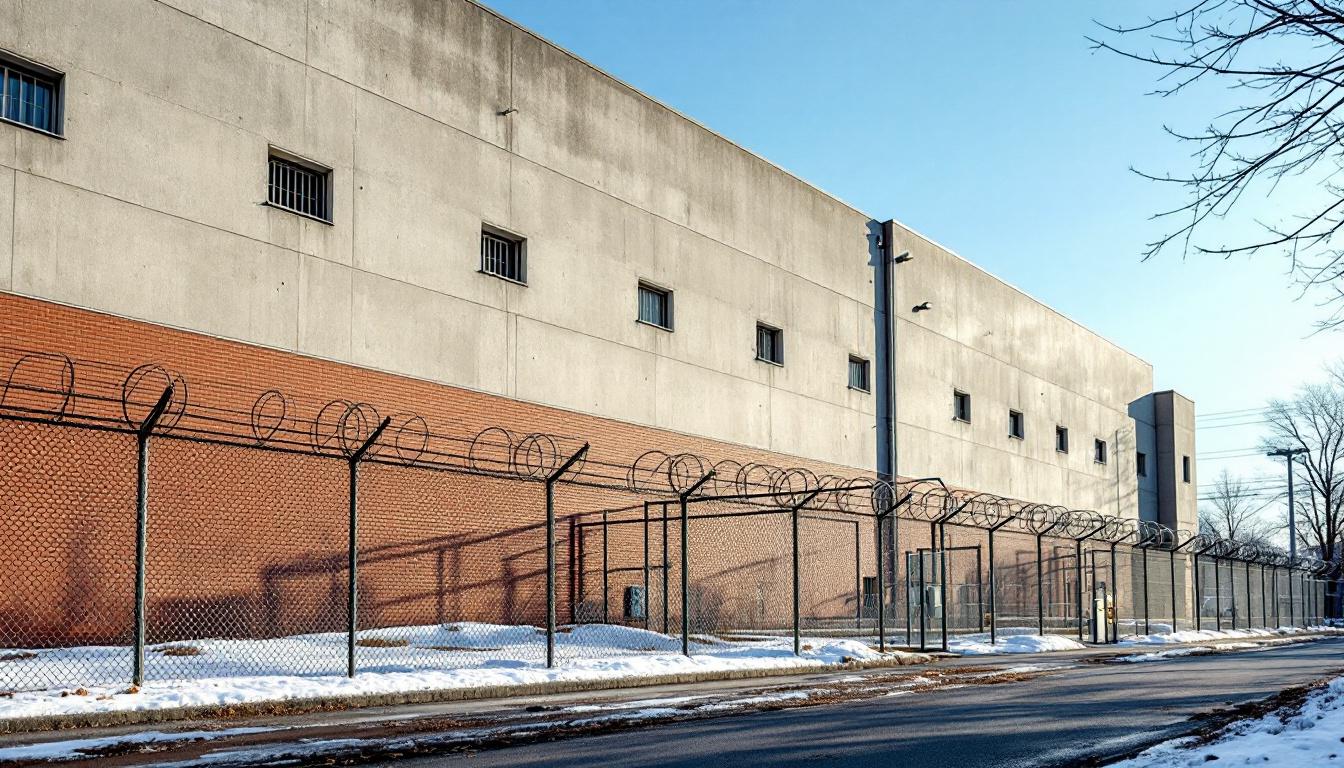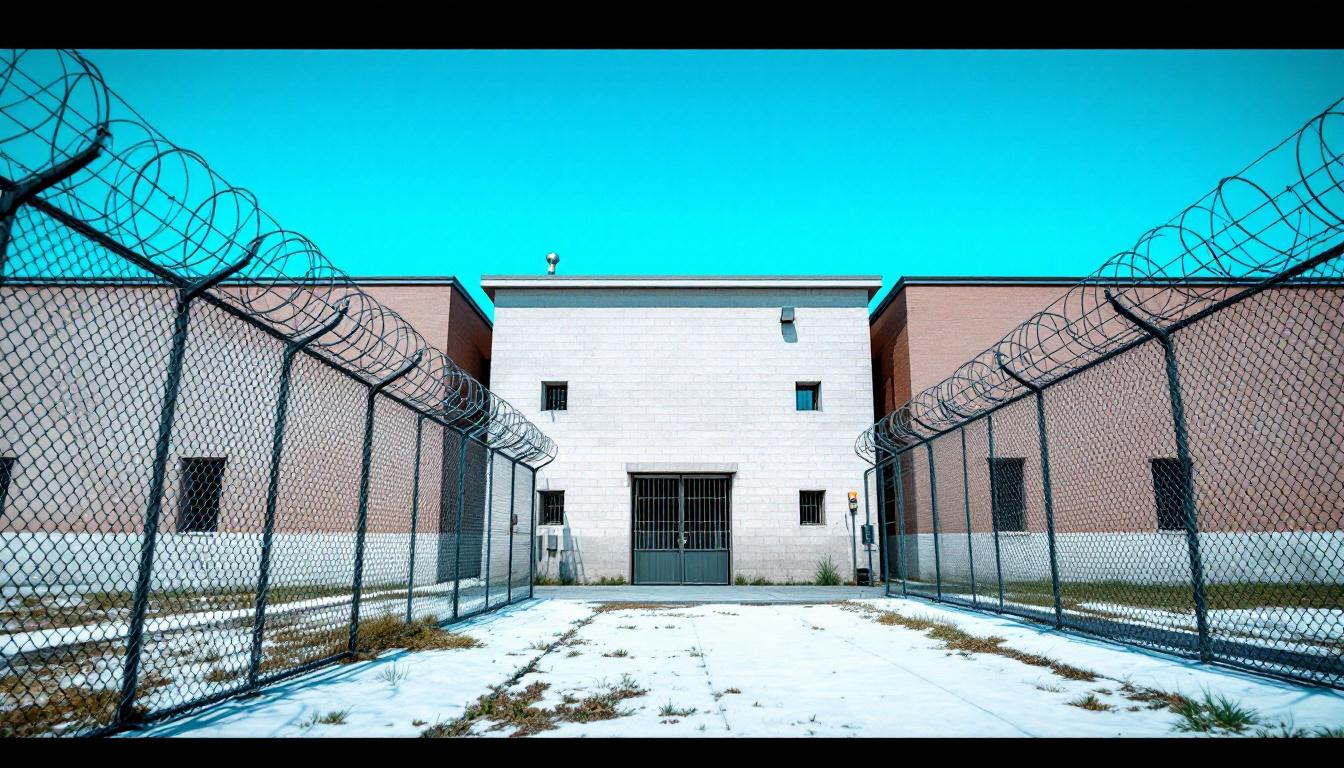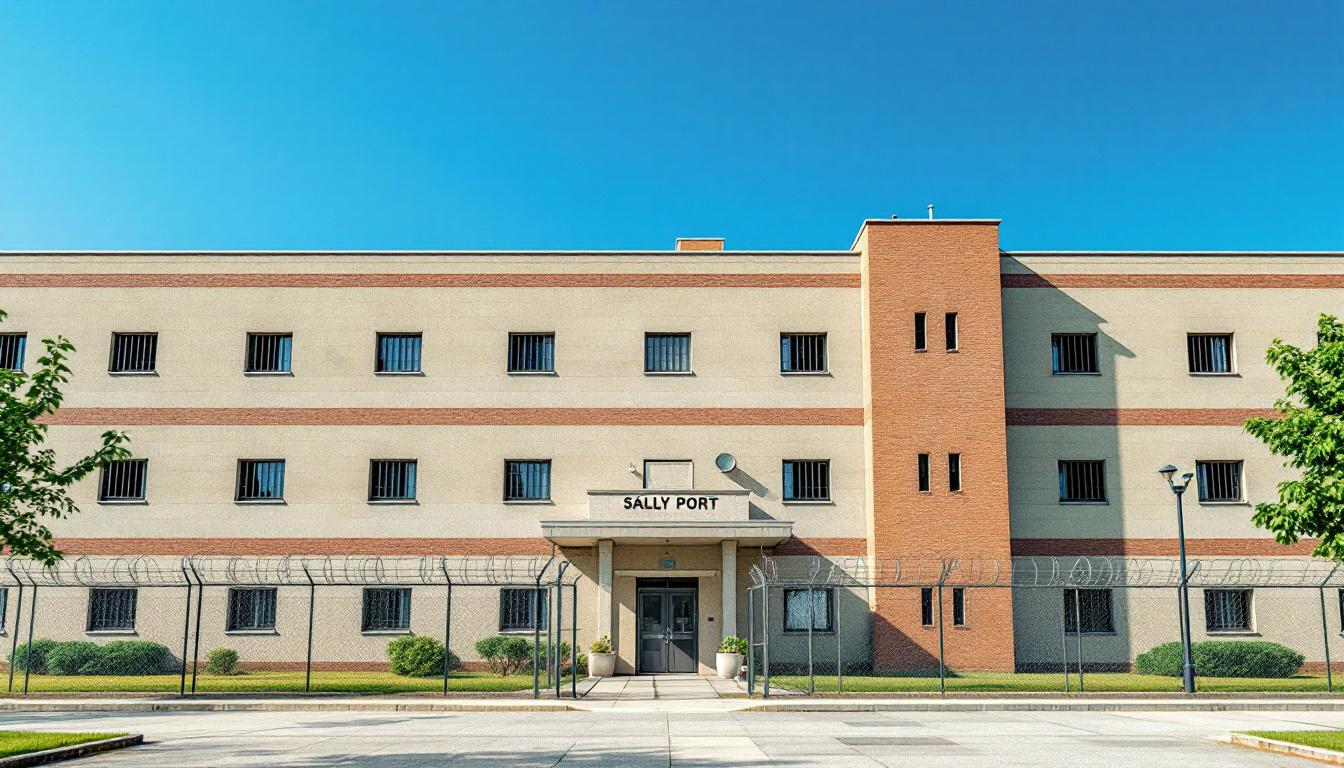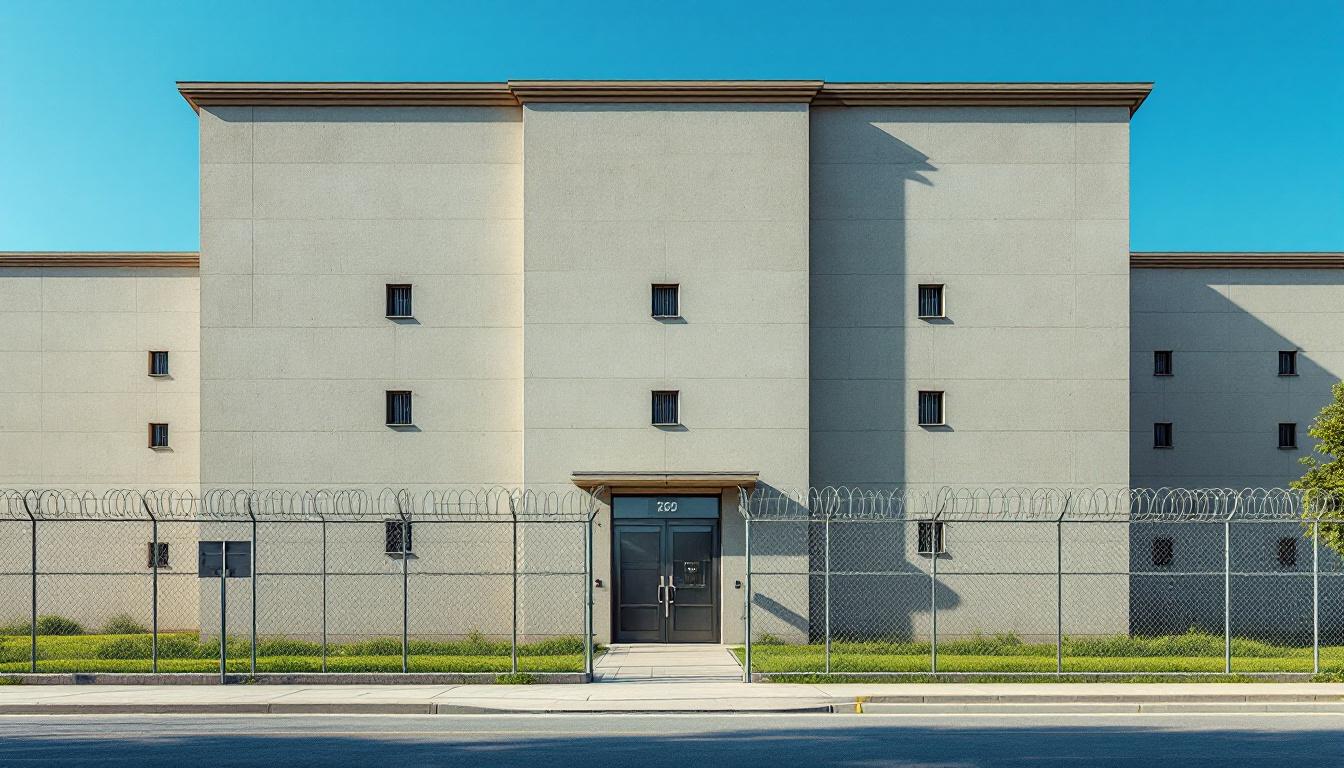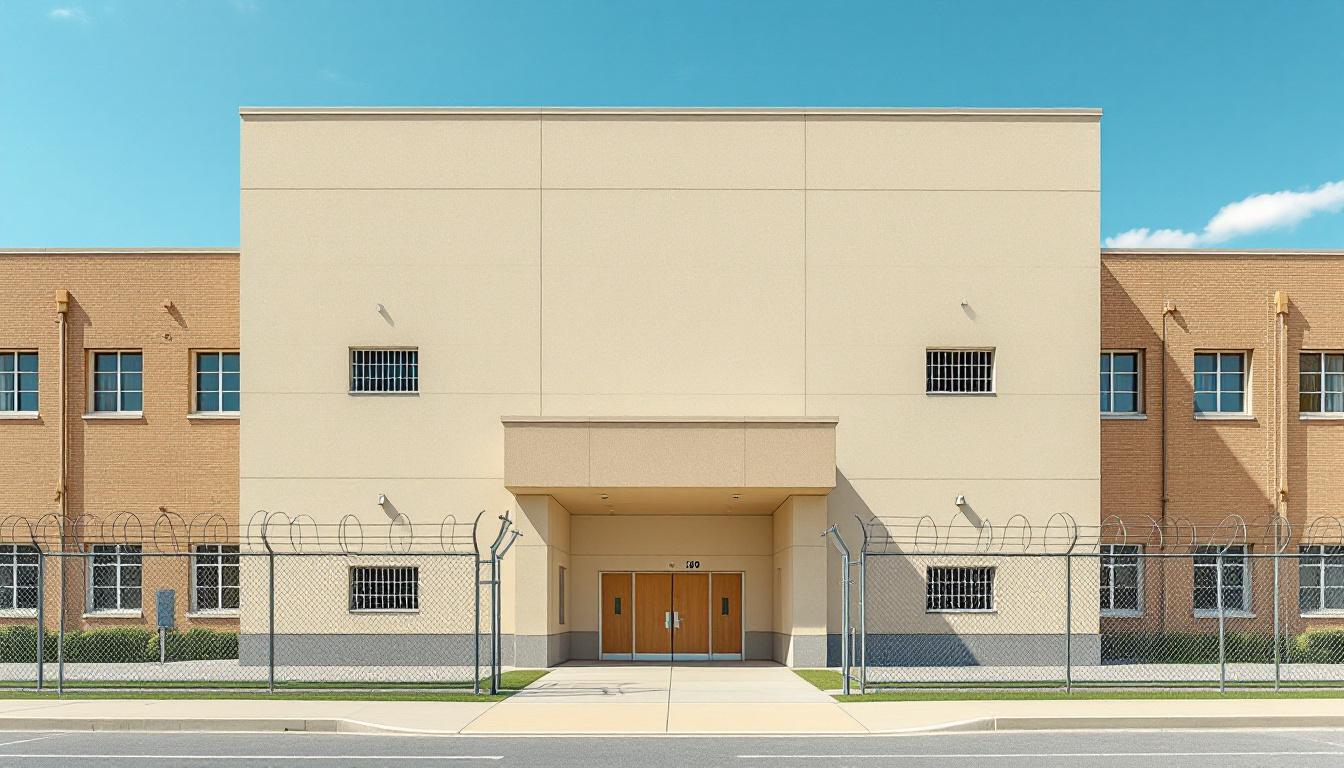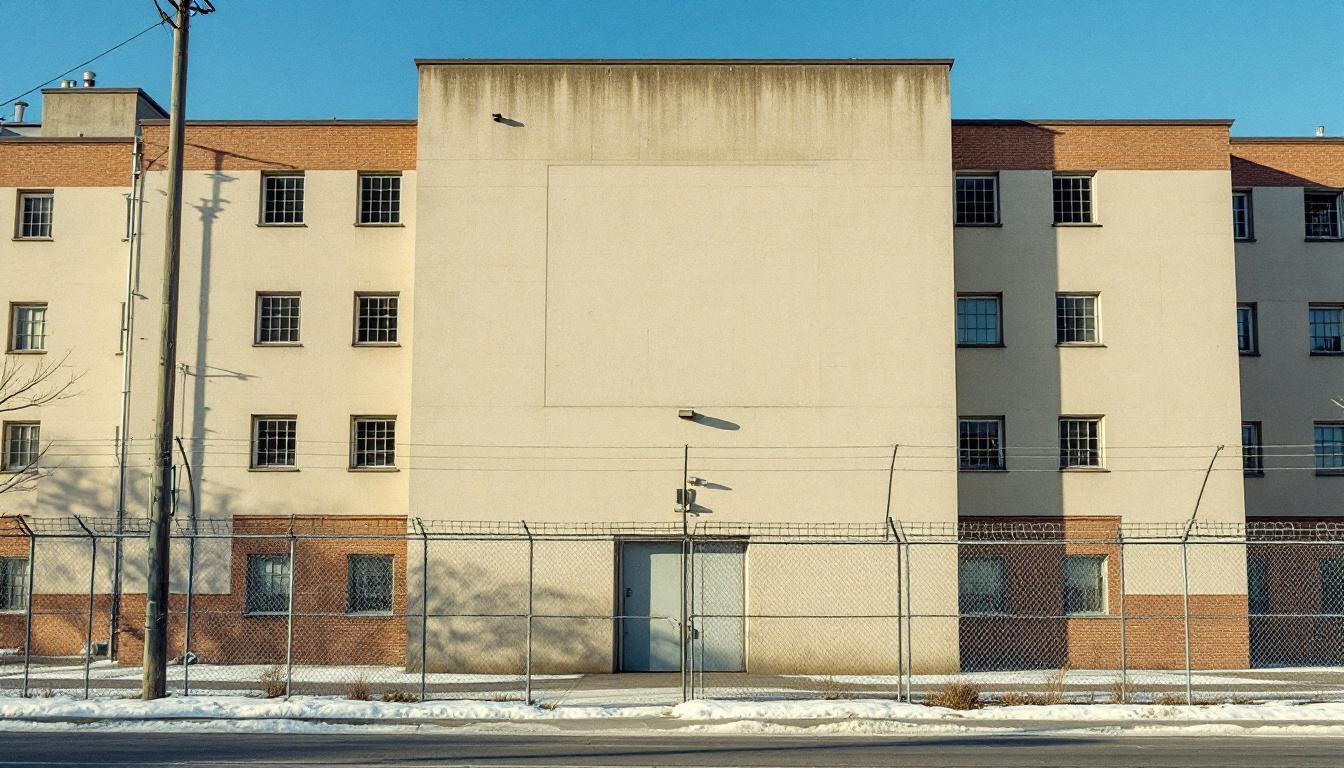
Quick Navigation
How to contact an inmate at Arlington County Jail
This comprehensive guide will walk you through how to connect with an inmate at Arlington County Jail. Follow the steps below to find an inmate and send letters and photos:
- Search for the inmate using our search tool below
- Create your account or log in to Penmate
- Write your message (up to 6,000 characters)
- Send instantly - inmates receive printed copies daily
Find an Inmate
Search for an inmate to start communicating today
Tip: You can search by first name, last name, or inmate ID number
To contact a person at Arlington County Jail start by searching for the person on the official facility website. Perform a search by following these steps:
- Step 1: Enter their first name and last name into the search form and click "Search"
- Step 2: Locate their inmate record
- Step 3: Write down their Inmate ID and any housing information provided
Important! Be sure to enter the person's full name. Nicknames should not be used.
How to Send Messages to Inmates

You can use your phone or computer to send emails, letters, and photos to an inmate. Messages are sent electronically to inmate tablets or kiosks at the facility. If you would like to send a message, start by searching for an inmate at Arlington County Jail.
Sending Photos and Postcards

A great way to send love and support to a loved one at Arlington County Jail is to send photos and postcards. It only takes a few minutes to send photos from your phone and it makes a huge difference. You can also mail postcards with words of support and inspiration, or design your own postcard for special moments like birthdays and holidays.
Important! Be sure not to send any explicit photos or they may not be approved by the facility. You can also use a photo printing app like Penmate to make sure your photos are printed at the correct size (4x6 or 3x5) and are mailed according to the rules and regulations of Arlington County Jail.
Frequently asked questions about Arlington County Jail
-
How long does it take to deliver a message?
If you're sending an email message your letter is usually delivered within 24-48 hours. For messages sent via mail you should expect delivery within 3-7 days. All messages will need be approved by Arlington County Jail.
-
How much does it cost to send a message to Arlington County Jail?
You can send a message free using your phone or mail a message via USPS for the price of a $0.60 stamp and envelope. You can also purchase credits or e-stamps from services starting at $1.99.
-
What services can I use to contact an inmate at Arlington County Jail?
Penmate
You can use Penmate to send letters and photos to an inmate from your phone. It's an easy way to stay in touch during your loved one's incarceration. Use the inmate locator to find an inmate's location and contact information, then you can send messages within a few minutes.
Securus messaging
Securus may be another option for communicating with an inmate at Arlington County Jail. You can create a friends and family account and purchase credits to send messages. All messages will be reviewed and must be approved by the facility.
JPay
Some county jails and state prisons may support sending messages with JPay. You must register an account with the system, find your loved one, and purchase stamps to send messages. For some locations you can also attach photos.
Smart Jail Mail
You may also check if Smart Jail Mail is available at Arlington County Jail. Smart Jail Mail is operated by Smart Communications and has contracted with some state and county jails. After purchasing credits, your messages and photos are sent to the facility, printed out, and then handed out to your loved one.
-
What is the mailing address of Arlington County Jail?
Mailing address:
Arlington County Jail
1435 N Courthouse Rd
Arlington, VA 22201
Phone: (703) 228-4470Business hours:
- Monday: Closed
- Tuesday: 3:00 – 6:00 PM
- Wednesday: Closed
- Thursday: 3:00 – 6:00 PM
- Friday: Closed
- Saturday: 9:00 AM – 6:00 PM
- Sunday: 9:00 AM – 6:00 PM
-
What are the visiting hours at Arlington County Jail?
Visiting hours at Arlington County Jail vary by housing unit and security level. Generally, visits are scheduled on weekends and holidays, with some facilities offering weekday visits. Contact the facility directly at (703) 228-4470 or check their website for the current visiting schedule. Visits typically last 30-60 minutes and must be scheduled in advance.
-
What items are prohibited when sending mail to Arlington County Jail?
Prohibited items typically include: cash, personal checks, stamps, stickers, glitter, glue, tape, staples, paperclips, polaroid photos, musical or blank greeting cards, hardcover books, magazines with staples, and any items containing metal or electronics. Only send letters on plain white paper with blue or black ink. Photos must be printed on regular photo paper (no Polaroids). Always check with Arlington County Jail for their specific mail policies.
-
How do I send money to an inmate at Arlington County Jail?
You can send money to an inmate at Arlington County Jail through several methods: 1) Online using JPay, Access Corrections, or the facility's approved vendor, 2) Money orders mailed directly to the facility with the inmate's name and ID number, 3) Kiosks located in the facility lobby, or 4) Over the phone using a credit or debit card. Fees vary by method, typically ranging from $2.95 to $11.95 per transaction.
-
Can I schedule a video visit with an inmate at Arlington County Jail?
Many facilities now offer video visitation as an alternative to in-person visits. At Arlington County Jail, video visits may be available through services like Penmate, Securus Video Connect, GTL, or ICSolutions. Video visits typically cost $10-20 for 20-30 minutes and must be scheduled in advance. You'll need a computer or smartphone with a camera and reliable internet connection. Contact the facility for their specific video visitation policies and approved vendors.
-
What identification do I need to visit an inmate at Arlington County Jail?
All visitors must present valid government-issued photo identification such as a driver's license, state ID, passport, or military ID. Minors must be accompanied by a parent or legal guardian who can provide the minor's birth certificate. Some facilities require visitors to be on the inmate's approved visitation list, which may require a background check. Contact Arlington County Jail for specific ID requirements and visitor approval procedures.
-
How can I find out an inmate's release date?
To find an inmate's release date at Arlington County Jail, you can: 1) Use the online inmate search tool if available, 2) Call the facility's records department, 3) Contact the inmate's case manager or counselor, or 4) Have the inmate provide this information during a call or visit. For privacy reasons, some facilities only release this information to immediate family members.
Facility Overview
Contact Information
Arlington County Jail1435 N Courthouse Rd
Arlington, VA 22201
Phone: (703) 228-4470
Official Website
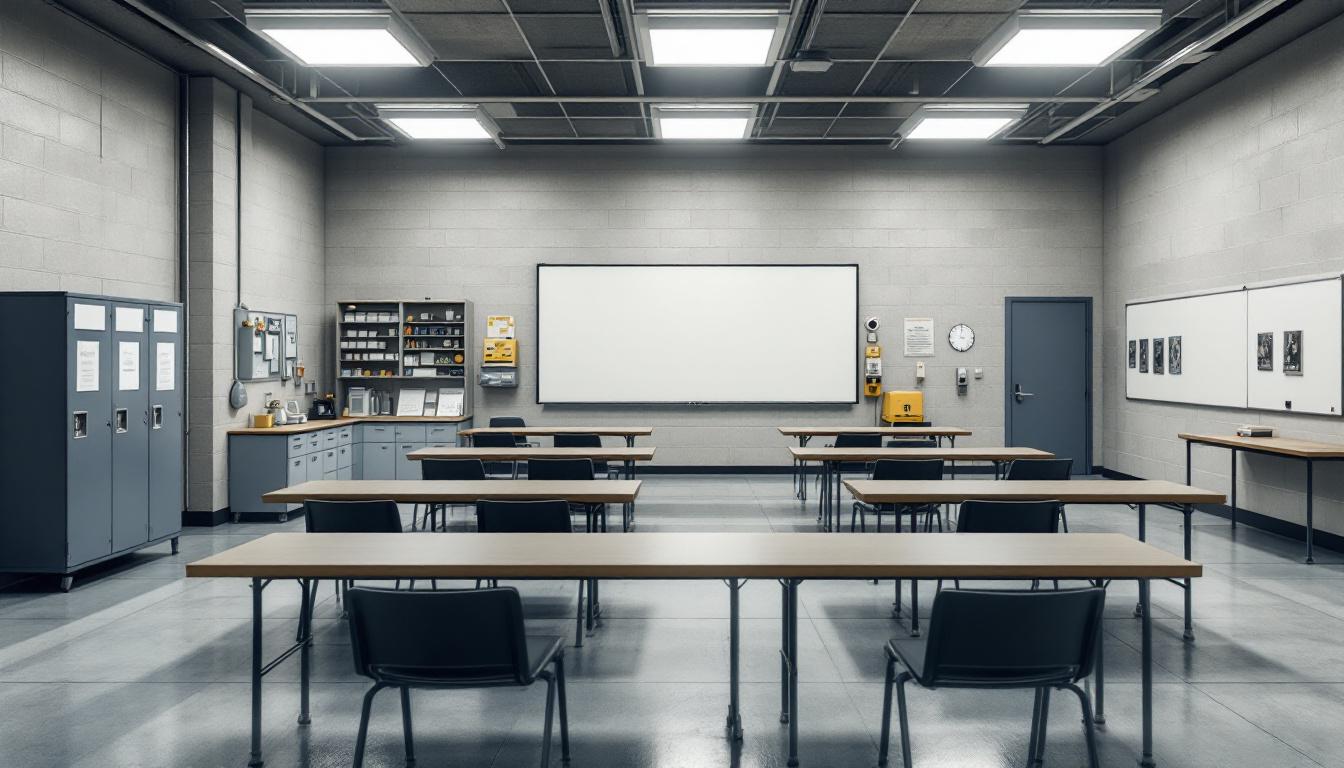
About Arlington County Jail
Detention centers serve as crucial transitional points within the correctional system, balancing secure custody with preparation for community reentry, and Arlington County Detention Center, VA operates within this framework while serving the Lebanon, WA area. Located in Lebanon, this WA correctional facility typically functions as part of Washington State's broader network of detention and correctional institutions, providing secure housing for individuals awaiting trial or serving shorter sentences. The facility generally maintains security protocols appropriate for its classification while working to support both public safety and individual rehabilitation needs.
The population services at Arlington County Detention Center, VA may include various programs designed to address the diverse needs of those in custody. Educational opportunities, substance abuse counseling, and vocational training programs are commonly offered at detention centers throughout the Pacific region, helping individuals develop skills that support successful reintegration into their communities. The facility typically works to maintain family connections through visitation programs and communication services, recognizing that strong community ties often contribute to positive outcomes following release.
Within Washington's correctional system, detention centers like this one often serve multiple functions, housing pre-trial detainees while also providing space for those serving shorter sentences or awaiting transfer to other facilities. The Lebanon location allows the facility to serve surrounding communities in the Pacific Northwest, where rehabilitation-focused approaches are increasingly emphasized alongside traditional security measures. Staff generally work to balance the dual responsibilities of maintaining safety and security while providing opportunities for personal growth and preparation for eventual community reintegration.
Programs & Services
Through comprehensive programming designed to address individual needs, Arlington County Detention Center typically provides structured support that helps the population develop essential life skills and prepare for successful community reintegration. The facility's approach emphasizes creating opportunities for personal growth while maintaining strong connections to family and community resources. These evidence-based programs often focus on building confidence, developing practical abilities, and fostering positive behavioral changes that support long-term success.
Educational services form a cornerstone of the facility's programming, with offerings that may include basic literacy instruction, GED preparation, and ESL classes for non-native English speakers. These educational opportunities typically provide flexible scheduling to accommodate various skill levels and learning needs. Moreover, vocational programs often supply hands-on training in practical trades and job skills, while work programs may offer structured employment opportunities within the facility that help participants develop workplace responsibility and earn modest compensation for their efforts.
Group therapy sessions typically provide a supportive environment where the population can address underlying issues and develop healthy coping strategies with professional guidance. These therapeutic programs often focus on substance abuse recovery, anger management, and life skills development that support successful reintegration into the community. The facility may also supply additional support services that connect participants with community resources, helping to strengthen family relationships and establish networks that continue beyond their time at the facility.
Daily Life & Visitation
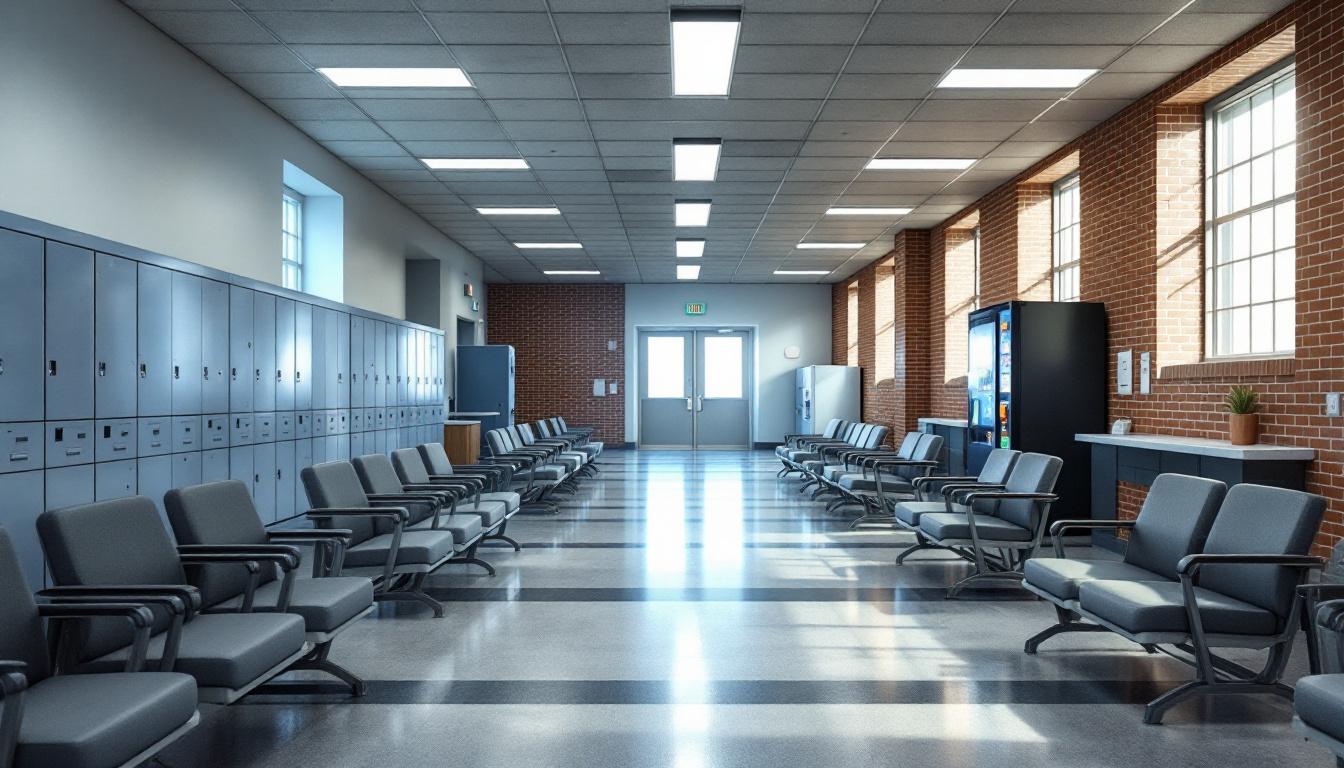
Organizational frameworks actively shape every aspect of the experience for the population housed within the Arlington County Detention Center. At present, structured scheduling governs daily routines from early morning wake-up calls through evening lockdown procedures. The population typically follows established patterns that include designated times for meals, programming activities, and recreational periods. Housing assignments actively determine much of how individuals navigate their daily experience, with classification systems placing residents in appropriate units based on various factors.
Living accommodations generally consist of dormitory-style housing units or individual cells, depending on classification levels and facility capacity. The population typically shares common areas within their designated housing units, which may include dayrooms equipped with televisions and basic recreational materials. Meals are usually served in centralized dining areas according to predetermined schedules, with the population moving in organized groups under staff supervision. Moreover, commissary services supply additional food items and personal care products that residents can purchase with funds from their accounts.
Structured programming schedules supply educational opportunities, vocational training, and counseling services throughout the week. Recreation and exercise periods typically occur in designated areas, allowing the population access to physical fitness equipment and outdoor spaces when available. Whereas in-person visitation follows specific scheduling protocols, communication options generally include monitored telephone calls and correspondence privileges. Work assignments within the facility often provide structure and purpose, with various maintenance, kitchen, and administrative duties available to eligible residents. Family connections remain vital, as the facility typically facilitates regular contact through established communication channels and visitation programs.
Ready to Connect?
Start communicating with your loved one today
Search for an Inmate
